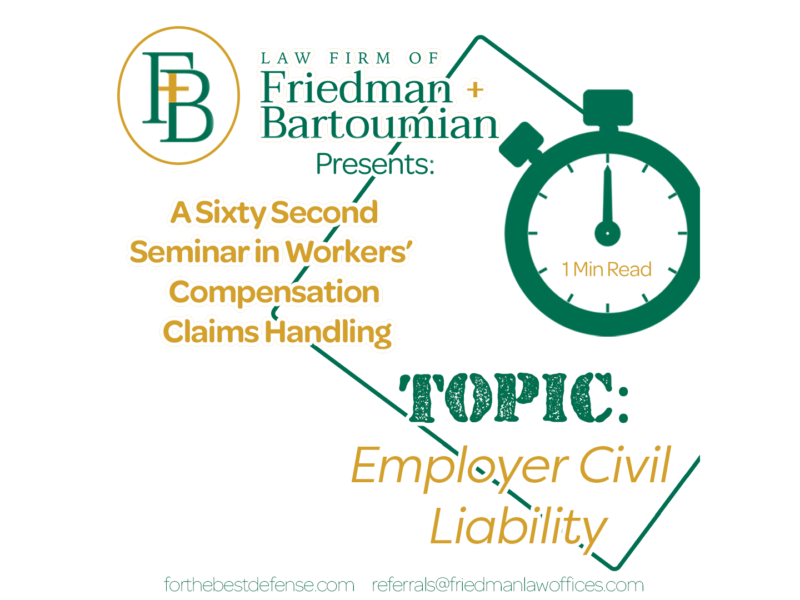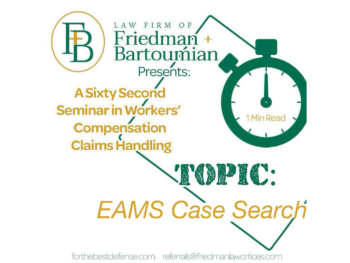In California, an injured worker’s exclusive remedy against an employer for injuries arising out of an industrial accident is subject to the provisions of the Workers’ Compensation Act, found within our state constitution at Article XIV, Section 4, which provides that any dispute between the worker and their employer over the worker’s entitlement to benefits are to be resolved at the Workers’ Compensation Appeals Board. However, there are a handful of exceptions that allow the injured worker to file a civil lawsuit against an employer in addition to a workers’ compensation claim, and seek broader damages not allowed for by the Board, such as monetary compensation for emotional distress. Today’s blog will describe some of these exceptions and will conclude with a surprise ending.
Below is a description of five exceptions to the worker’s compensation exclusive remedy doctrine that both civil litigation and a work comp claim to be filed:
1. Power/Punch Press: An injury attributed to the employer tampering with the design of a power/punch press by removing a safety guard or by not installing a guard where one is necessary, allows an injured worker to initiate civil action. A power/punch press involves the use of a die to press, stamp, punch or extrude material. Such machinery is exceptionally dangerous unless safety guards are in place. A worker can easily lose a hand or fingers when a guard is missing.
2. Assault: A civil suit is allowed if an employer deliberately assaults an employee. In addition, an employer may also be held liable in civil court should it ratify an assault by a co-worker by failure to initiate disciplinary action.
3. Failure to Secure Workers’ Compensation: A civil suit is allowed when at the time of injury, the employer has willfully and illegally failed to secure workers’ compensation benefits by neither purchasing insurance nor being legally self-insured.
4. Fraudulent Concealment: An employer can be held civilly liable should it fraudulently conceal the existence of an injury attributed to employment resulting in an aggravation of that injury. The best-known example of fraudulent concealment is the Johns-Manville Products cases involving a failure to disclose exposure to asbestos.
5. Dual Capacity: This exception occurs when the employer owes multiple duties over and beyond an employment relationship. We usually see this situation arise where the industrial injury is attributed to an item manufactured by the employer, where the company is subject to a product liability exposure.
As promised, we have a surprise ending to today’s blog. Some, but not all, of the above exceptions to the exclusive remedy doctrine are covered by insurance under a standard policy of workers’ compensation insurance. A typical comp policy consists of two parts, described as coverages A and B (also known as coverage parts I and II). Coverage A provides standard workers’ compensation benefits that are implicated in 99.9% of all California workers’ compensation claims. Coverage B involves employer liability stemming from an industrial injury and comes into play when civil liability is pursued against an employer for a work injury. This coverage indemnifies employers from, and funds their defense against civil claims filed by injured workers who attempt to bypass or supplement the exclusive remedy provisions of the Workers’ Compensation Act. While here in California a claim file is seldom set up under Coverage B due to the nature of our laws, should civil litigation ensue from a workplace accident, both the employer and claims administrator should review the policy issued by the insurer to determine if coverage is available. And one further note, where the coverage afforded under Coverage A provides unlimited dollar exposure, Coverage B is subject to a pre-determined policy limit.



 Claim Form Consequences: A Sixty-Second Seminar in Workers’ Compensation Claims Handling
Claim Form Consequences: A Sixty-Second Seminar in Workers’ Compensation Claims Handling
Leave a Reply